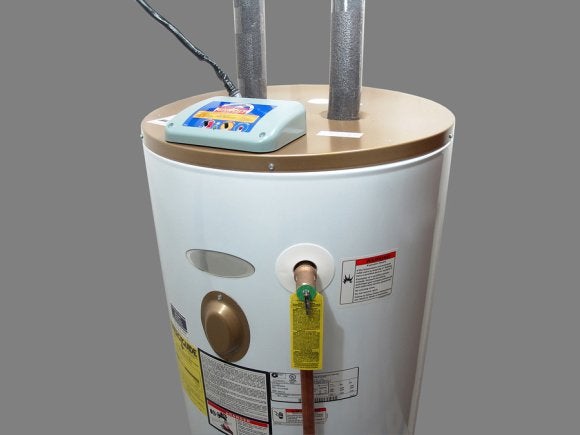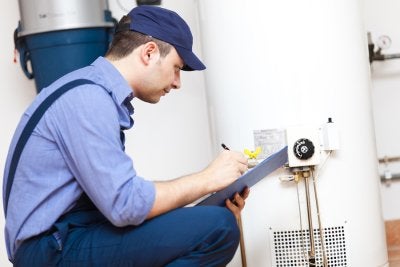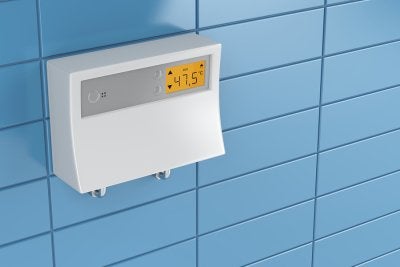-
Keeping Your Drains Clear
Preventing Clogged Drains
Clogged drains are one of the most common plumbing problems that homeowners face. There are, however, steps you can take to avoid having to call a plumber to unclog a drain in your home. Watch this video to hear about how you can prevent the need for a costly plumbing repair in Jacksonville.
To keep your drains clear, you should be very mindful about what you place down them. By keeping food particles, hair, grease, oil, and foreign objects out of your drains, you can stop clogs from impacting your plumbing system. You should also run hot water down your drains about once every week to clear soap scum and other residue that might build up inside of them. When you take these precautions, you won’t need to worry about calling a plumber to fix a clogged drain or do a new drain line installation.
-
Does Your Water Heater Need to Be Replaced?
Without your home’s hot water heater, there are many daily tasks that you won’t be able to complete. From taking a shower to washing your clothes and dishes, you need a functional water heater to survive, so you will need to call a plumber right away when your current water heater gives out. Eagerton Plumbing Co., Inc. can help you install a new water heater in Jacksonville whenever you need one.
There are certain signs that will indicate that your water heater is going to fail at any moment. For example, if you have discolored water coming out of the faucets in your home, it’s a sign that the sediment inside of your water heater’s tank has become dislodged as a result of a problem with it. Likewise, a leaky tank will show that it’s time to call the plumber for a new water heater. By keeping an eye out for these signs, you can replace your water heater before it completely fails on you. When you work with Eagerton Plumbing Co., Inc., we will act quickly to get a new water heater installed so that you aren’t left without hot water for an extended period of time.

-
Save Money and the Environment at the Same Time
By now, you’re probably well aware of what it means to go green. As a homeowner, it’s sensible to make eco-friendly choices when it comes to your home. Not only are energy-efficient appliances and fixtures good for the environment, but they also can save you a lot of money on your monthly energy bills. Here are some good reasons to make environmentally conscious decisions regarding your home’s plumbing. For more information, contact Eagerton Plumbing in Jacksonville today.

Upgrade Your Old Hot Water Heater
An appliance in the home that uses a lot of energy is your hot water heater. The most common type of water heater found in homes is a standard storage-tank model—a large cylindrical unit that houses a reservoir of heated water that’s constantly kept at a set temperature. Older storage-tank water heaters tend not to be as energy efficient as newer models, which are insulated and have better water-heating capabilities. If your current water heater has been running for 10 years or more, consider upgrading to an insulated storage-tank water heater, a solar-powered unit, or a tankless water heater.
Switch to Water-Saving Toilets and Bathroom Fixtures
Conventional toilets are water wasters—the amount of water used with each flush tends to be excessive and unnecessary. Energy-efficient toilets use water sparingly when flushed, and many offer innovative flushing technologies that can effectively accommodate both liquid and solid waste accordingly. If you’re planning a bathroom remodel, opt for a dual-flush toilet. Also, replace dated faucets and showerheads with fixtures that have aerating mechanisms. By adding air to water, aerators create the sensation of strong water pressure while using very little water.
Insulate Your Pipes
By insulating your home’s plumbing pipes, you can rest assured that your water is kept either warm during the cold months or cool during the summer for a longer period of time—lessening or eliminating the need to use more energy to heat or cool the water in your pipes.
-
Choosing the Best Plumbing Pipe
If you’re planning a kitchen or bathroom remodel, or you need to have old plumbing pipes replaced, you want to be sure that the job goes smoothly and that it’s done properly. There are many options for homeowners when it comes to plumbing pipe such as copper, PVC (polyvinyl chloride), or PEX (crosslinked, high-density polyethylene).
When it’s time to make a decision, consult with a licensed and experienced plumber serving Jacksonville who specializes in plumbing repair, sewer and drain line installation, and kitchen and bathroom renovation. Check out this video to learn more about what your choices are regarding plumbing for your home.
-
Should You Switch to a Tankless Water Heater?
Should You Switch to a Tankless Water Heater?
Do you have a standard storage-tank water heater that’s on its way out? If so, you’re probably looking into having it replaced. But with so many options on the market today, which hot water heater is the right one for your home? You could choose to replace your old water heater with another storage-tank model, or you could take the opportunity to switch to a tankless water heater in Jacksonville . Here are some things to consider when making your decision to switch. When in doubt, consult with your local plumber.

What a Tankless Water Heater Is
Like its name suggests, a tankless water heater does not have a storage tank that houses a reservoir of continuously heated water that is available for immediate use. This type of hot water heater is much smaller than its storage-tank cousin, and since it only heats water when needed, it can be relatively energy efficient when compared to a traditional model.
What You Should Take into Consideration
You shouldn’t be too hasty when making the decision to switch over from a standard storage-tank water heater to a tankless one. Be sure to do as much research on tankless water heaters as you can, and talk with a plumbing professional—that way, you can be sure that a tankless water heater is right for you. Before you decide, you should figure out how much hot water you and your family actually use on a daily basis. For example, if you have a large family that requires the use of a lot of heat water, a tankless system may not be a good fit for your home.
The Pros and Cons of Tankless Water Heaters
There are some notable pros and cons regarding tankless water heaters. Pros: Tankless systems don’t take up as much space as standard hot water heaters, don’t need to keep reservoirs of continuously heated water, and may lower your monthly energy bills if you install the right model. Cons: Tankless water heaters cost more upfront to purchase and install than traditional models.
RECENT POSTS
categories
- Uncategorized
- Water Heater Installation
- Tankless Water Heater
- Plumbing Services
- Bathroom Remodeling
- Hot Water Heater
- Plumber in Jacksonville
- Water Heater Repair
- Eagerton Plumbing
- Eco-Friendly Plumbing Repair
- Water Damage
- Plumbing Leak
- Sewer Line Repair
- Infographic
- Clogged Drains
- Kitchen and Bathroom Remodel
- Bathroom Plumbing
- Residential Plumbing Services
- Garbage Disposal
- Toilet Repair
- Water Heater Replacement
- Water Conservation
- Emergency Plumbing
- Commercial Plumbing Services
- Kitchen Design Inspiration
- Kitchen Remodel
- low-flow toilets
- Leaky Faucet
- Conserve Water
- Drain Pipes
- Kitchen Sinks
- Vessel Sink
- Plumbing Problems
- Water Leak
- Commercial Remodeling Contractors
- Drain Cleaning Services
